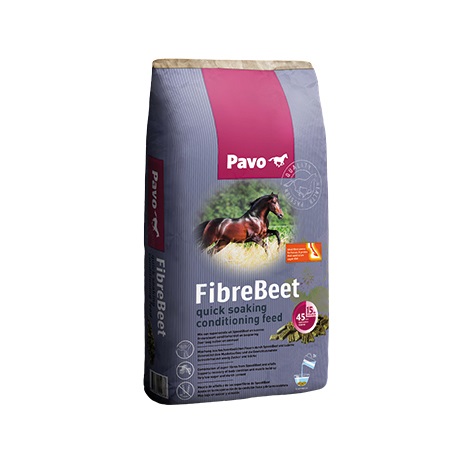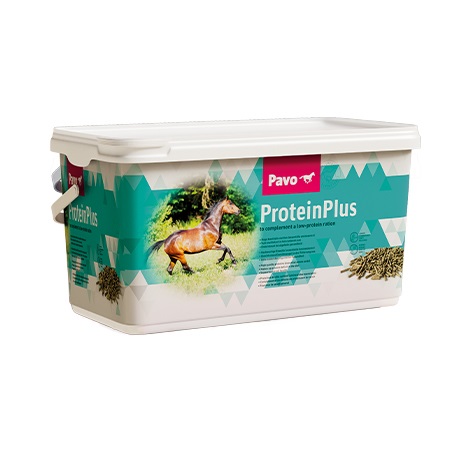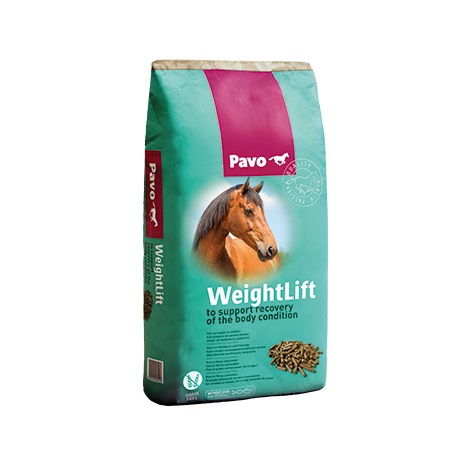A muscular horse provides strength and stamina. With the right nutrition and training, you can help your horse build its muscles.
How long does muscle building take in horses?
As with humans, your horse will not become beautifully muscled overnight. It requires a combination of the right nutrients, such as sufficient protein, and adequate training to encourage muscle growth. If you get all this just right, you can see your horse's muscle mass build significantly over an average of 3 months. Use the tips below to support your horse's muscle growth in a healthy way.
How does my horse gain muscle?
It is good to realise that a horse can never gain more muscle; the amount of muscle cells is genetically determined. However, muscles can get fatter. Training triggers muscle cells to store more energy, thus increasing muscle mass and also increasing your horse's performance and stamina.
1. Provide sufficient protein in the ration
The main building blocks for muscle are proteins which consist of chains of several amino acids. There are both essential and non-essential amino acids. Non-essential amino acids can be produced by the horse's body but essential amino acids, such as lysine, methionine and tryptophan, cannot. A horse has to get these through food, so you need to help with that.
Your horse gets most of its nutrients from roughage, such as hay. Using a forage analysis, you can test how much protein and energy your hay contains, amongst other things. Since sport horses have an above-average need for protein (and energy) to perform, chances are that the values from the forage are not sufficient so needs to be supplemented. It is best to do this with a protein-rich roughage product, such as Pavo FibreBeet or Pavo WeightLift. Both products are a fibre-rich, healthy support for horses with a condition deficit and/or poor muscling. The main difference is the preparation: you feed Pavo FibreBeet soaked and the advice for Pavo WeightLift is to just feed it dry.
Does your roughage and concentrate feed contain enough energy, but not enough protein? Then the supplement Pavo ProteinPlus is a suitable choice. This is a concentrated protein source specially made to supplement protein shortages in the ration, without providing extra energy or other nutrients in the process.
2. Training schedule for muscle building
Besides nutrition, training and fitness play a crucial role in building muscle. It is important that training is built up slowly and that there is enough variety. By keeping your horse in good condition, you increase the share of energy sources in the muscle that allows your horse to work longer without becoming sore.
- Always start your training with a good warm-up and finish with a cool-down.
- Make sure there is enough variation between tightening and relaxing in training. Think about alternating heavier exercises with easier ones and take regular breaks to let your horse stretch its neck.
3. Supplement to provide extra muscle support
Horses that could use some muscle-building support, (young) horses that have just started training, or sport horses after a rest period can benefit from the extra nutrients of a supplement. Pavo MuscleBuild has been specially developed to support the building of muscle mass. It contains whey powder, known from the bodybuilding world, which contains a number of very important amino acids (proteins) for muscle building. In addition, it helps prevent muscle fatigue and thus helps your horse keep up their effort for longer.
Tip: The ultimate boost for a muscular horse consists of the protein-rich roughage product Pavo FibreBeet or Pavo WeightLift in combination with the supplement Pavo MuscleBuild.
4. Give the muscles time to recover
Besides all the exertion, relaxation is at least as important. Give your horse regular days off between training sessions so that the body has time to recover.
How do you care for a horse's muscles?
If training is built up very quickly and the muscles have to work too hard, there is a risk of them becoming sore. Waste products then accumulate in the muscle and your horse may experience some muscle soreness and will feel stiff after exercise. As your horse's muscles get stronger, the point at which they become sore will stay further away.
To prevent stiff and sore muscles, you can provide extra support to the muscles by giving them a nutritional supplement. Nutrients such as vitamin E, selenium, magnesium and antioxidants support the maintenance of supple muscles. The supplement Pavo Eplus contains all these nutrients and is intended to prevent stiff and sore muscles after intensive training.
In horses that exert heavy effort, are sensitive to muscle acidification or in horses that work irregularly, the muscles need some extra care. For these horses, the supplement Pavo MuscleCare can offer extra support. This supplement takes care of stiff and sore muscles after (heavy) effort. Pavo MuscleCare contains natural antioxidants and beta-alanine which support the accelerated breakdown and removal of waste products in the horse's muscles. As a result, the horse can sustain intensive work for longer and more easily.

















